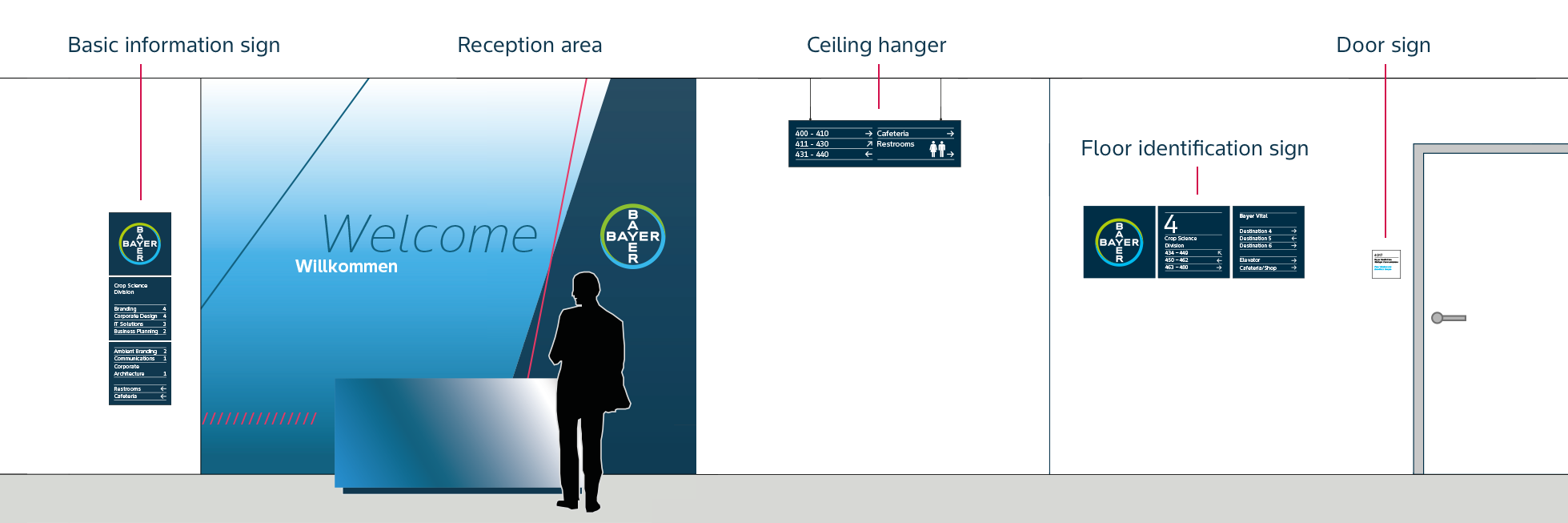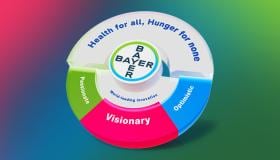Signage

The following signage elements inform visitors about local aspects and express the corporate philosophy in a catchy and intuitive way.
You will find core elements that are used in exterior and interior in the Signage Folder
Signage exterior – Production templates for elements of exterior use that shall draw attention to sites and buildings and inform visitors.
Signage interior – (Informative and flexible wayfinding elements for interior that will match all building requirements.
The Bayer Cross (specific production files) – The Bayer cross is our most important brand asset. Specific production files and principles you find here. Or in the Logo Finder
If you have any further questions about this or any other section of Bayer Identity Net, please contact:





